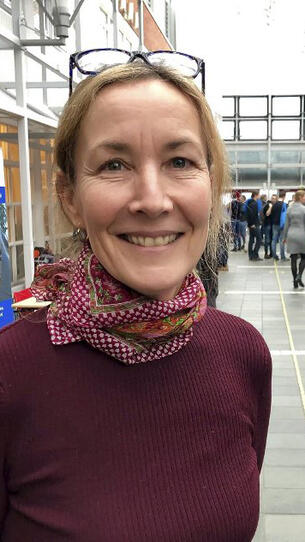 Kjersti Røsvik is defending her thesis for the degree philosophiae doctor (PhD) at the University of South-Eastern Norway.
Kjersti Røsvik is defending her thesis for the degree philosophiae doctor (PhD) at the University of South-Eastern Norway.
The doctoral work has been carried out at the Faculty of Humanities, Sports and Educational Science.
Everyone are welcome to follow the trial lecture and the public defence.
The title of the thesis is: Samtidige forståelser av barndom - barndommens konvensjoner og negasjoner
Summary
The focus of this thesis is childhood ideals, expressed in relation to symbolic and cultural categories. The thesis examines how notions about ‘good childhood’ and its negation, ‘bad childhood’, are a cultural construction based on dialectical and transformative processes.
The empirical data mainly consists of texts as well as some interviews. I refer to the data as material performative texts produced by children, adolescents, and adults. The teddy bear diaries (a correspondence between the home and school) represent the everyday stories of young children. The interviews include stories of growing up as told by young people with experience of the child welfare service. Publicly available texts (scientific texts, media texts and government documents) present a narrative about the care of children and the role of the child welfare service in the Norwegian welfare state, as defined by adults.
The theoretical perspective of the study is diverse and is placed within a
performative framework. The perspective is based on the fundamental idea that all human practice – anytime, anywhere – can be viewed as a public presentation of the self – a staged culture. Investigating people’s active and social construction of reality as it occurs in informal everyday life and studying how people’s linguistic practices create meaning and how the community of opinion helps to shape culture and social life are central to the thesis.
Through a polyphony of voices, the thesis shows how concomitant understandings of ‘good childhood’ and ‘bad childhood’ are constructed. Various analytical concepts are used to address the research problem in the thesis: Goffman’s eye for social order, interaction order and optimisation of actions in the smallest of situations brings to light how cultural voices negotiate boundaries between symbols of ‘good childhood’ and ‘bad childhood’. Bourdieu’s subtle understanding of power and concept of positioning in the social field have helped unravel hegemonic and dominant understandings of ‘good childhood’. Butler’s abstracted subjects and Alexander’s performative success have made it possible to discover and understand how children’s voices are given meaning in various negotiation processes linked to children and childhood as a social category.
They have shown how social categories arise and are relationally and procedurally constructed in dialectical processes at different levels. Shifting between different analytical approaches and capturing diverse perspectives has also helped show how different types of data stimulate different theoretical conversations and raise awareness of how knowledge is constructed and established.